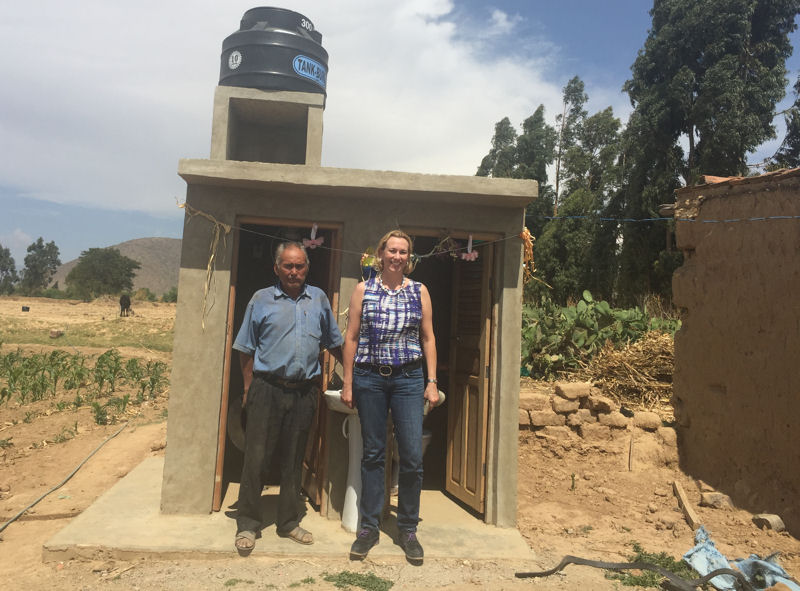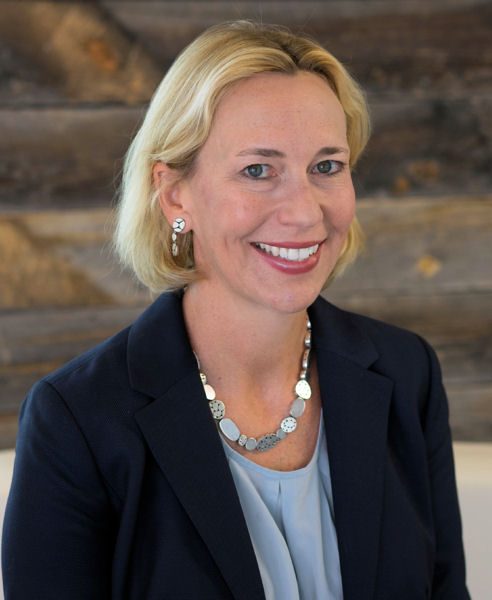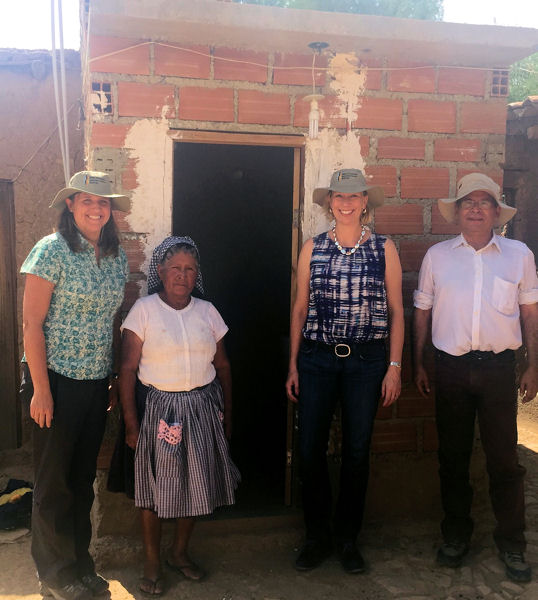
Eleanor Allen (right), the new CEO of Water For People (Denver), stands with Don Pedro in front of his new toilet and shower. Photo courtesy of Allen.
Water For People (WFP; Denver), a Water Environment Federation (WEF; Alexandria, Va.) charity of choice, works to bring lasting access to safe water and sanitation to 4 million people. Eleanor Allen, new CEO for the international nonprofit, seeks to deliver WFP’s goal of delivering water and sanitation to “everyone forever” through, in part, a greater focus on sanitation.

Allen seeks to deliver WFP’s goal of delivering water and sanitation to “everyone forever” through, in part, a greater focus on sanitation. Photo courtesy of Allen.
Allen, a professional engineer with experience in water and sanitation at CH2M (Englewood, Colo.), joined WFP in July. Most recently, she worked as global director of water at ARCADIS (Amsterdam). Under her long-term vision, WFP will
- continue to deliver safe water and sanitation in nine countries,
- expand its work to more locations,
- work with national governments on country-wide universal coverage frameworks,
- create a greater focus on sanitation, and
- collaborate with organizations such as WEF to increase its impact in the water sector.
And through alignment with the United Nations Sustainable Development Goal 6 of providing universal access for all to water and sanitation by 2030, sanitation will continue to be a major part of WFP’s long-term strategy.
WFP works to provide access to sanitation coverage by building supply chains and business opportunities for latrine or toilet purchase, latrine solids collection, and latrine solids management for repurposing to develop products that can be sold such as biofuels, compost, and fertilizer.
To date, access to sanitation coverage is about 58% in the areas where WFP works.

Allen (third from left) and two colleagues stand in front of Doña Carmen’s new toilet in Bolivia. Photo courtesy of Allen.
WFP works with local governments, community members, businesses, and technology providers to find solutions that are right for each community. It also works to ensure that systems are well built, have water committees or utilities trained for long-term operation and maintenance, and are supported by funds that community members pay for the service.
Learn more about WFP in the videos Everyone – Water For People, The start of sanitation for everyone in Nicaragua, and Latrine pit emptying and marketplace development: a mucky business (Uganda).
— Eileen O’Neill, WEF executive director, and Eleanor Allen, Water for People CEO








November 26, 2015
Featured